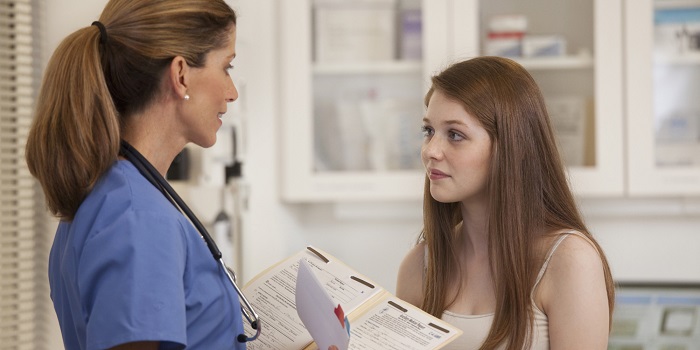You become pregnant when your partner's sperm fertilizes an egg released by your ovaries. This usually happens quite quickly and getting pregnant is not a big issue for most women. However, the process can take time for others. In fact, statistics show that although 80-90 of every 100 couples trying for a baby will get pregnant within a year, still there are couples looking for some advice to conceive. You can do a number of things to increase your chances of becoming pregnant. Let's find out more.
Increase Your Chances of Getting Pregnancy
Know the Right Time to Get Pregnant
Taking right care of your body is certainly important, but you should also have some knowledge about the best time to get pregnant. For this, you need to learn about your "fertile window". This window usually last up to six days – starting from five days before ovulation and ending on the day of ovulation.
This window is usually considered very small because an egg can only survive for about 24 hours after release, but sperms can stay alive up to a week, so it is possible to get pregnant even if you engaged in sexual activities 5 days before ovulation. However, your chances of becoming pregnant are the highest if you have sex 1-2 days before ovulation. The problem is that most women do not know how to determine the exact day of ovulation.
To get a better idea, you need to know the length of your menstrual cycle and also consider how regular or irregular your periods are. Your menstrual cycle may be as long as 36 days, but it can also be as short as 22 days. Most women get their period between 12 days and 14 days once they have ovulated. It means that you may ovulate by the middle of your cycle in case of a 28-day menstrual cycle. You might ovulate after a few days of your period in case of a shorter menstrual cycle.
If you are desperately trying for a baby, you may want to have sex every 2-3 days to increase your chances. This way, you do not have to live by the calendar. Moreover, your partner's sperm quality will improve in case you have sex every 2-3 days instead of having sex daily.

Know the Role of Sex Positions Played in Conceiving
- Many people think that they can improve their chances of getting pregnant by trying certain positions, such as missionary position, but unfortunately, there is no scientific evidence to support it. However, some experts believe that you are more likely to get pregnant when having sex in the missionary position or doggy style because these positions facilitate deeper penetration. The tip of your partner's penis is more likely to be next to your cervix during the missionary position. However, this does not suggest that other positions are not as good because there is no research done to check how effective those positions are when trying to have a baby. Therefore, it is better to enjoy your sex life and try different positions to keep it fun.
- Another common question is regarding the position after sex. Some women think they can increase their chances of becoming pregnant by staying lying down after the act. This is to ensure that the semen stays around your cervix for long enough to make a difference. However, there is no scientific evidence suggesting that this will help because there are millions of sperm in your vagina, so it really does not matter if you stand up immediately after the act.
- It is worth mentioning that some women think that they will conceive only when they have an orgasm. Again, this is not true. While your partner should try everything he can to help you reach orgasm and enjoy the act to the fullest extent, it really does nothing to improve your chances of becoming pregnant. There may be gentle contractions in your uterus while you have orgasm, but that is not going to make a big difference in helping the sperm to fertilize the egg. Instead, it is better to have sex more often than trying different position to increase your chances of becoming pregnant.

Other Tips to Help You Succeed When Trying for a Baby
There are a number of other things to try to increase your chances of having a baby. Here are 6 best methods you should try.
1. Take a Prenatal Vitamin
You should start taking a prenatal vitamin a few months before you attempt to become pregnant. You may continue to take it after becoming pregnant. You would require at least 400mcg of folic acid because it helps prevent birth defects. Be sure to talk to your healthcare provider and ask them about any multivitamin you should be taking.
2. Include Healthy Food in Your Diet
You need to be very careful with what you eat while trying to conceive. You should be getting enough of protein, calcium, and iron on a daily basis, which is why you should eat plenty of veggies, fruits, whole grains, lean protein, and other healthy sources of fat. Include broccoli, cereals, fortified breads, leafy green vegetables, citrus fruits, and orange juice in your diet to get enough B-vitamin. You should also limit your intake of high-mercury fish, such as shark, swordfish, tilefish and king mackerel.
3. Follow a Healthy Exercise Plan
It is a good idea to maintain a healthy lifestyle while trying to conceive, but you need to avoid engaging in strenuous exercise routines. Strenuous workouts can cause physical stress and interfere with ovulation. Women who engage in heavy exercise routines are more likely to have menstrual disturbances.

4. Quit Bad Habits
It is important to quit smoking to increase your chances of having a baby. It applies to both you and your partner. Cigarettes contain so many harmful chemicals, including carbon monoxide and nicotine that can affect your fertility. It can deplete your supply of eggs, so you should avoid smoking and ensure you are not exposed to secondhand smoke as well. Similarly, you should avoid alcohol because even moderate use can make it difficult for you to conceive.
5. Maintain a Healthy Weight
It is hard to become pregnant when you are overweight, but it is even harder when you are too thin. You may have to weight twice as long to conceive if your BMI is above 35, but you may have to wait four times as long to become pregnant if your BMI is under 19. If you are overweight, consider losing 5-10% of your body weight before trying for a baby. Pay attention to your diet to gain weight in a healthy way because being too thin can affect your periods and ovulation.
6. Know When to Get Help
You may want to talk to a fertility specialist if you are less than 35 years of age and have failed to conceive even after trying for a full year. You should seek help if you are over 35 years of age and have not conceived after trying for 6 months. It also helps to talk to your doctor about any fertility problem you or your partner may have.

